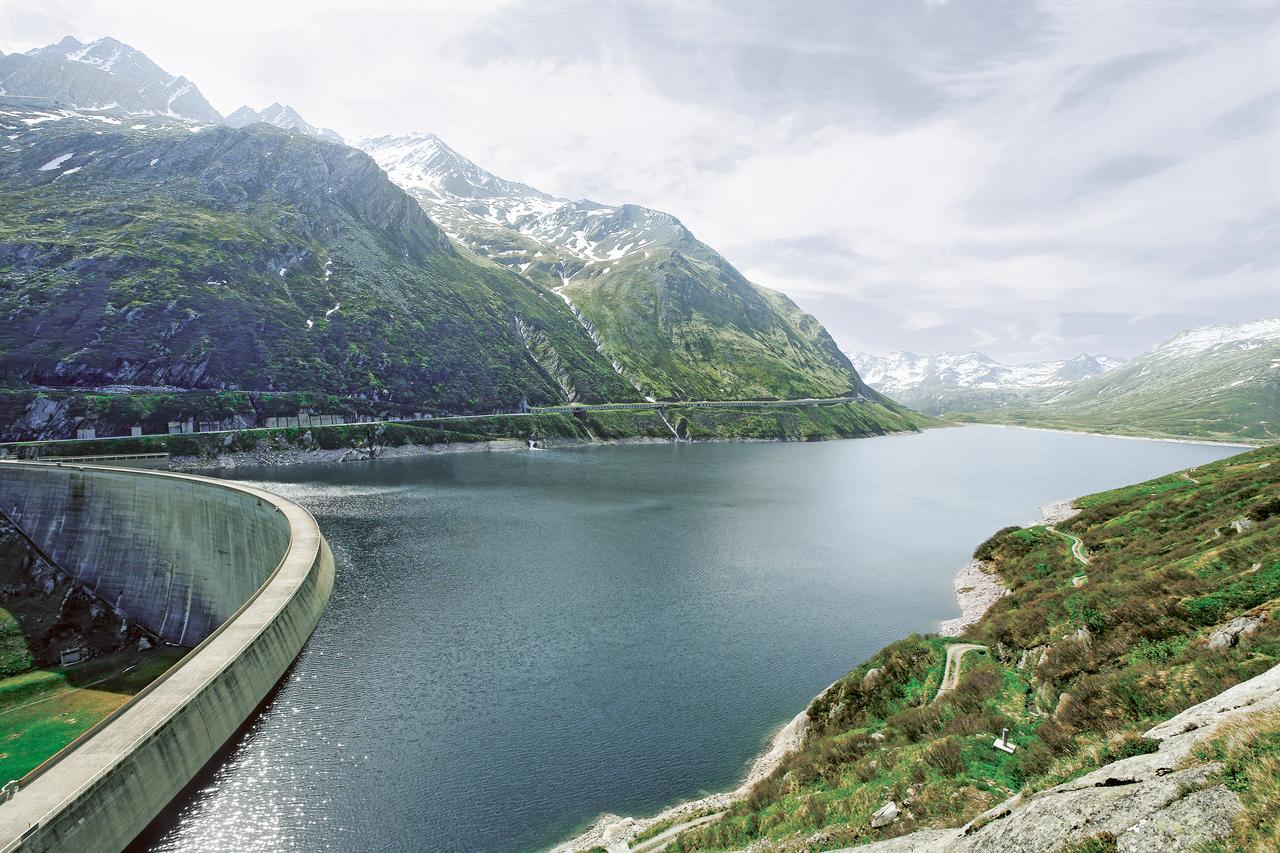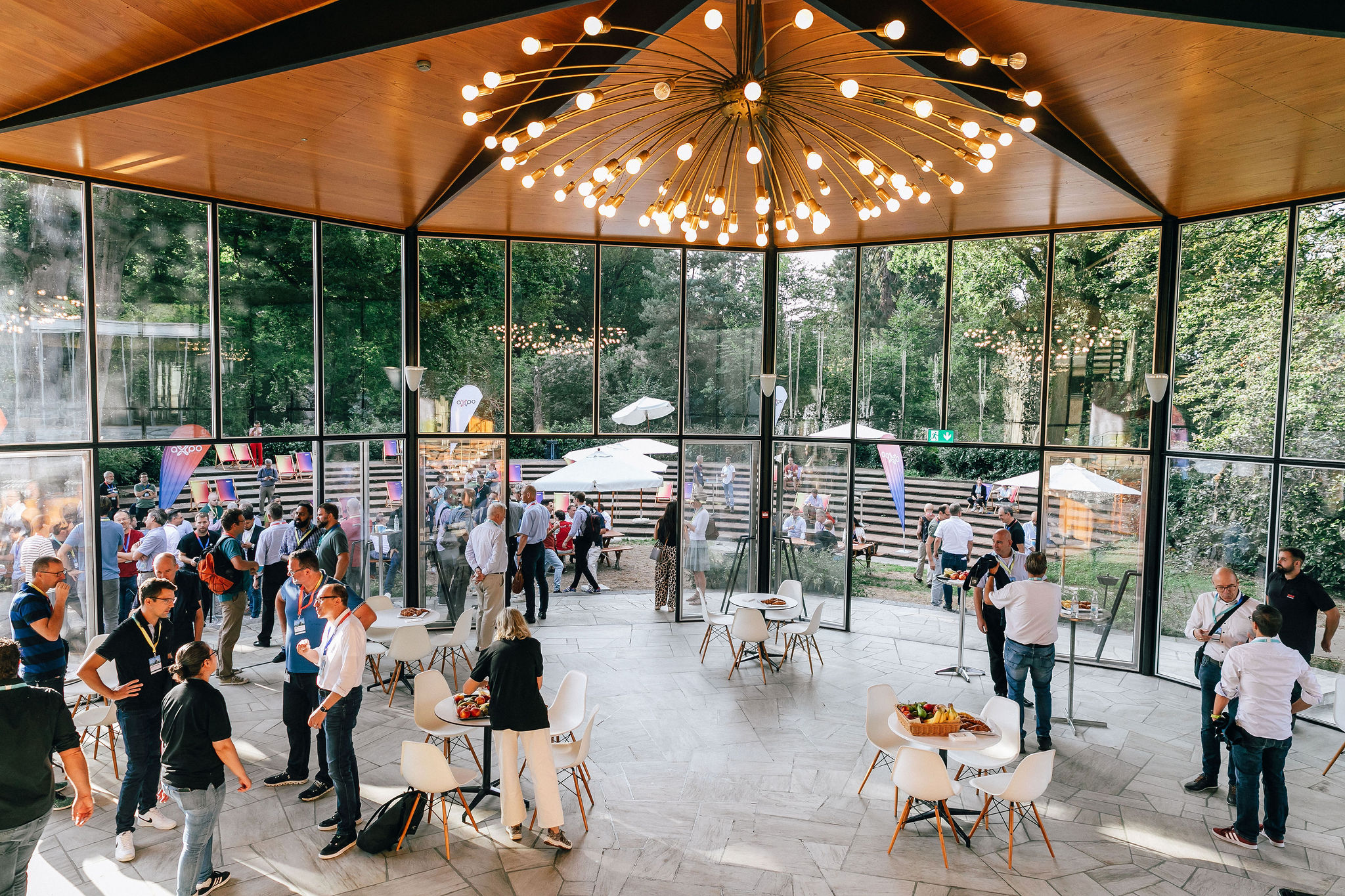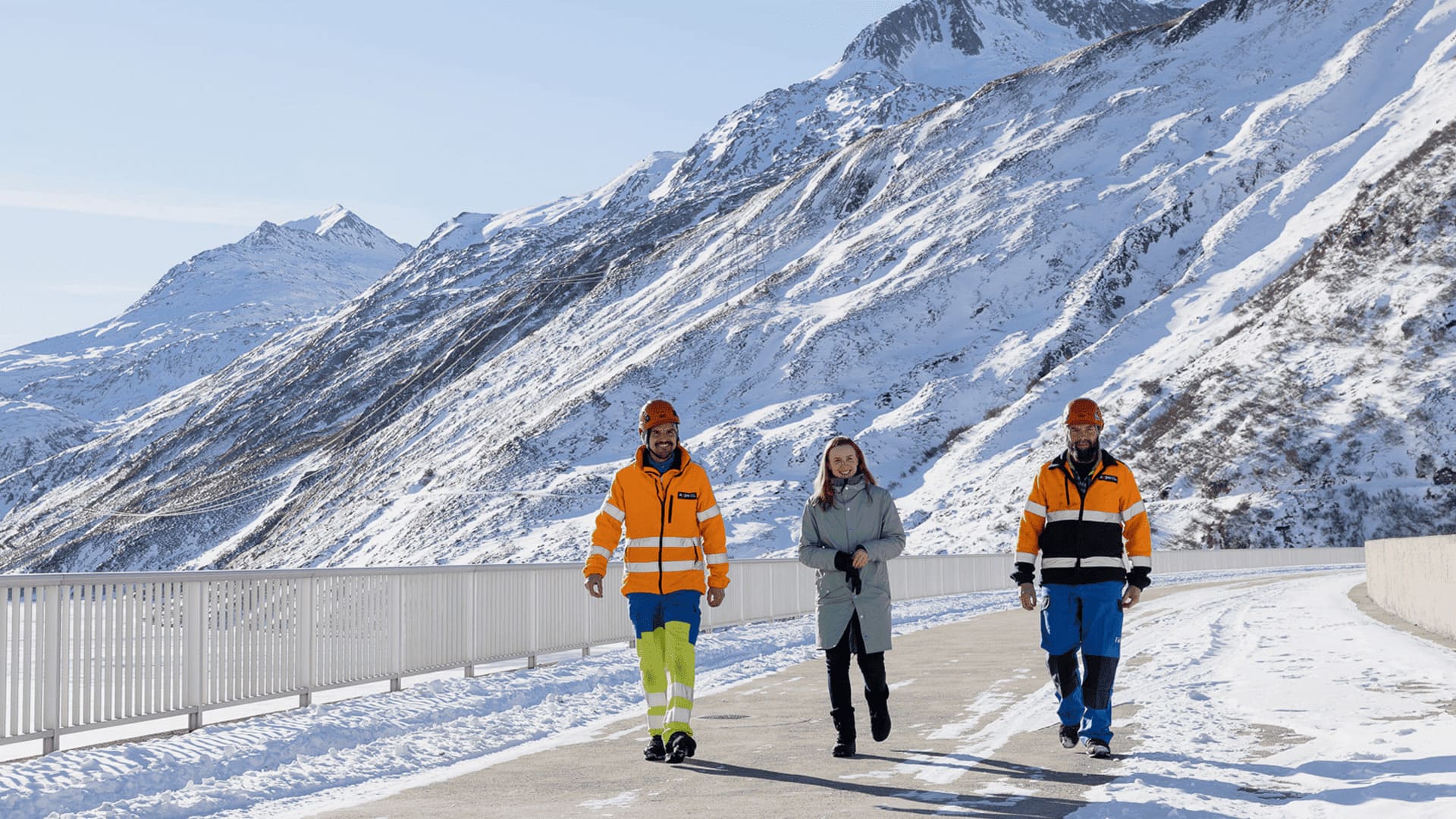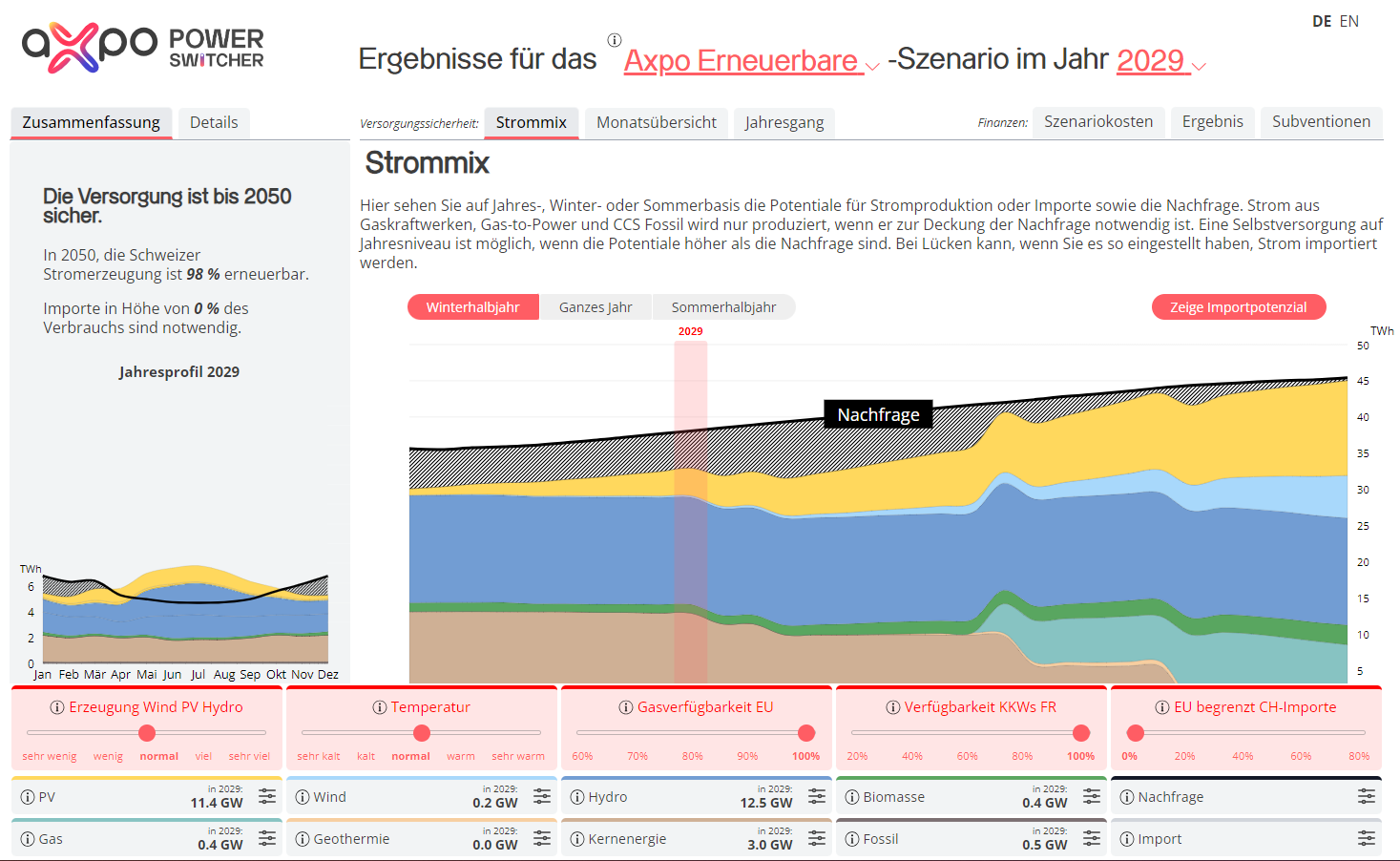17.03.2021 | Energy perspectives 2050+: Ideas from an energy supplier perspective
"Good basis for in-depth discussion"
Switzerland intends to become climate neutral by 2050. This is the Federal Council's ambitious goal. The Energy Perspectives 2050+ published by the Federal Office of Energy describes how the net zero target can be reached technologically. Nick Zepf, Head of Corporate Development at Axpo says "The concept is a good first step and a basis for further development and in-depth discussion." A broad dialogue between government, science, society, environmental organisations and energy companies is needed now.
Climate change is currently humanity's key challenge and requires a global energy transition away from fossil energy sources. Axpo wants to make a contribution and play a leading role in Switzerland's transition to a CO2-free energy future. "Climate neutrality is the right goal, although it is an extremely challenging one," comments Nick Zepf, Head of Corporate Development at Axpo.
The Energy Perspectives 2050+ published by the Swiss Federal Office of Energy (SFOE) points out possible paths to a renewable, climate-friendly energy future in Switzerland. Based on scenarios, the Energy Perspectives 2050+ describe possible technological paths that Switzerland could follow. They are all require a strong expansion of domestic renewable energy production by the year 2050.
What are the Energy Perspectives 2050+?
Zepf looked at these scenarios from Axpo's perspective as an energy supplier: "The EP2050+ are a concept and a good first step toward a climate-neutral Switzerland," he says. They include calculations and descriptions of how climate neutrality can be achieved technologically – "but do not point out what measures and laws would have to be introduced to reach the ambitious 2050 goal."
In a first step, this concept must be validated. The EP2050+ contains points that are of key importance and must be looked at more closely. According to Zepf, these include the following:
- The security of power supply is the Achilles' heel of this strategy with a high proportion of stochastic energy based on one energy form, namely photovoltaics. However, to date, no security of supply analysis exists.
- The greatest challenge for Switzerland is shifting produced power from summer to winter (see box).
- The expansion of domestic power generation technologies is very ambitious and includes some that have not been tested. In addition, reserves have been included. What happens if expansion does not take place as planned.
- In the EP2050+, Switzerland's yearly consumption is balanced. How do things look in the decisive months and weeks during winter? Can we reliably count on substantial imports?
- Based on a low hypothetical CO2 price (USD 33/tonne) in the year 2030, the strategy will scarcely be achievable. Investment in exclusively new climate-neutral plants for energy supply will only be possible if the CO2 price is much higher.
- How will it be ensured that the economics add up and investment truly takes place?
- Acceptance must be guaranteed. This is a key social issue:
Plea for a broad dialogue
As a result, Zepf recommends an in-depth analysis of the EP2050+. For example, considerations on how Switzerland could cope with two-week period of dark doldrums (times with no or very little solar and wind power production). The summer-to-winter shift must also be looked at in more detail under consideration of costs and a storage solution.
The key for Zepf is to start the dialogue now. "It will take an objective, broad discussion on the energy future in order for Switzerland to solve the key issues. He calls for periodic discussions between government, science, environmental organisations, society and business/energy suppliers.
Goal of the dialogue: To establish a concrete, feasible plan for implementation based on the EP2050+ and to achieve societal acceptance for the related measures. In the summer of 2021, the Federal Council will adopt the dispatch on the Federal Act for the reliable supply of power from renewable energies. The revision offers many opportunities to create the necessary framework conditions and to set the course for a sustainable energy future. Zepf: "We must find the best possible path to achieve an energy transition to a climate-neutral society. A path that is widely accepted and affordable, and that guarantees Switzerland's security of supply. Axpo wants to contribute its expertise here."
Summer versus winter
Power consumption in Switzerland is higher in the winter half-year than in the summer (55% vs. 45%) –whereas power production is lower in the winter half-year than in the summer half-year (45% vs. 55%). This imbalance will intensify in the future – on the one hand owing to the nuclear phase-out and the increased expansion of solar power.
So, the question is how the surplus power produced in the summer can be shifted to the winter. However, according to the EP2050+, pumped storage power plant production must be doubled in comparison to 2019, and these plants are only suited for a day-night or weekday-weekend shift. As a result, additional storage plants are needed, or the power must be stored in large batteries or by means of power-gas/H2-power technologies. Both processes are still very expensive.
Up to now Switzerland has covered its winter power shortages through imports. The question is whether this will still be possible in 10 or 20 years with the pan-European restructuring of power supply away from coal and nuclear power.




.jpg)





